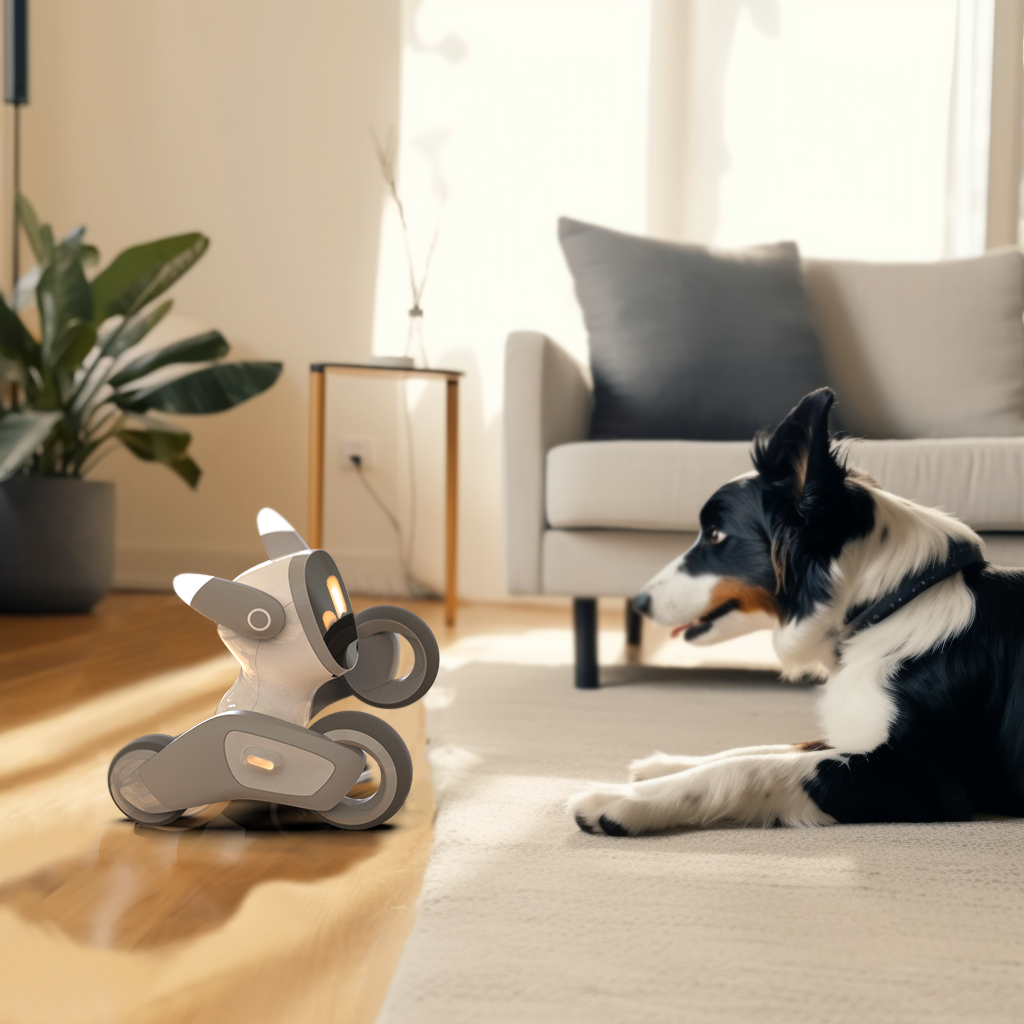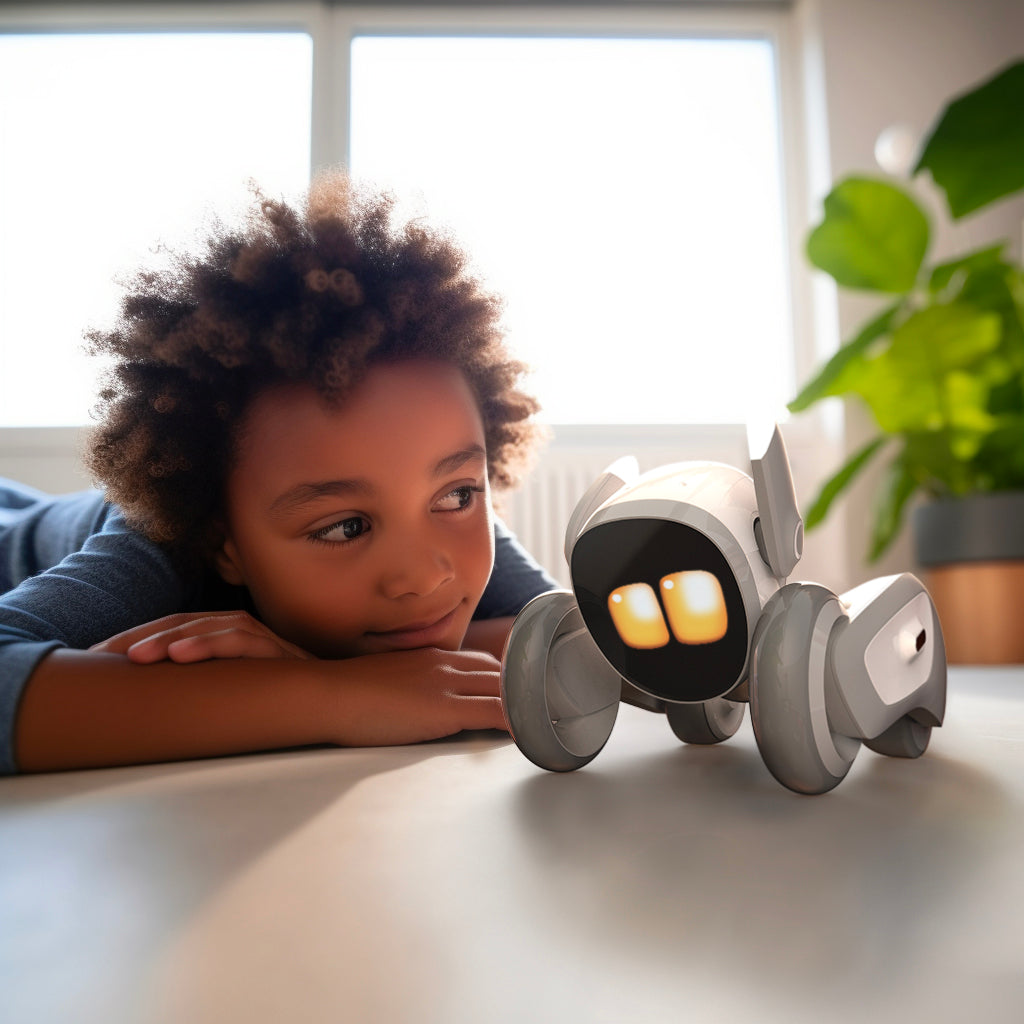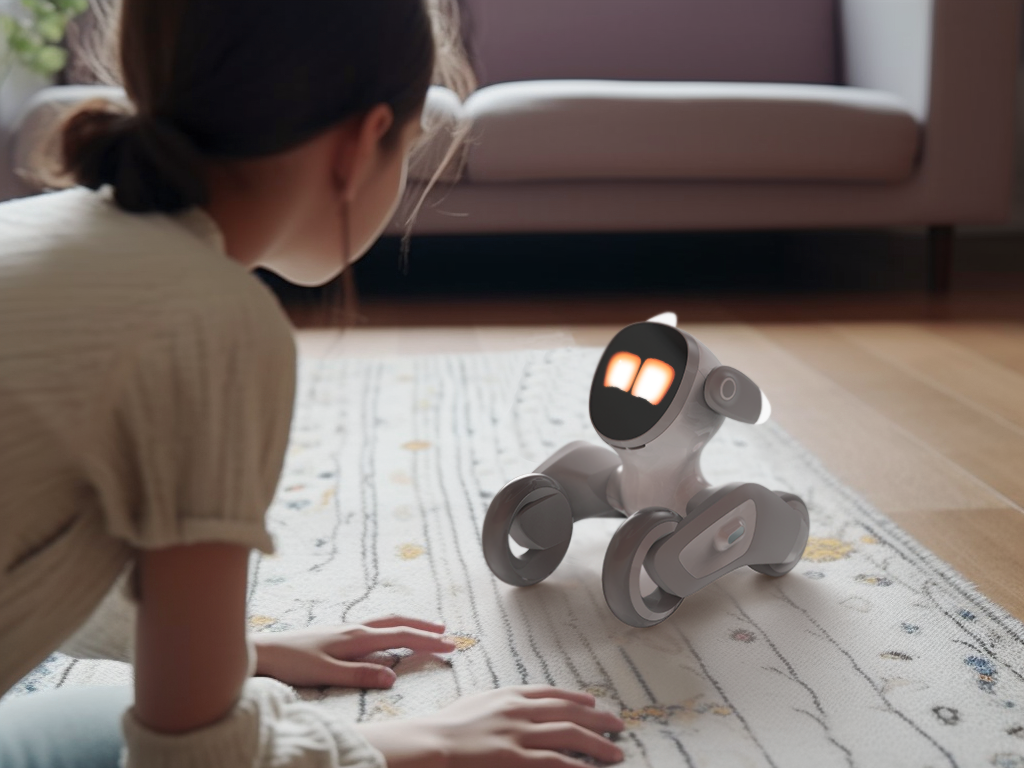Think about a pet that by no means sheds, doesn’t want walks, and but greets you with unshakeable enthusiasm. AI robotic companion are changing the best way we expertise pet possession by combining fashionable technology with emotional connectivity. From the busy expert to the parent looking for an interactive robotic playmate for children, or the senior searching for comfort, these affordable bots provide companionship without the traditional commitments.

What Are AI Robotic Companion?
AI robot pets are highly developed robots that simulate the behavior of real pets using artificial intelligence. These aren’t yet another static toy; they learn from interactions, respond to touch and voice and even simulate emotions.
-
Enter such brands as Sony’s AIBO, Love and Joy for All, which have raised the bar, creating bots that:
-
Identify the owners’ faces and voices.
-
Change their “personalities” over the years.
-
Imitate the movements of real animals (wagging of tails, purring etc.
-
These are not appliances — they are emotionally savvy stand-ins for people who can’t or don’t want a live puppy.
How Can a Robotic Cat Act Like One?
Role of AI and Machine Learning
Today\'s robotic pets have onboard system learning algorithms which are meant to provide some analysis of the user. For instance:
Favorite playtimes will be remembered by AIBO and he will pick up precise habits.
It may even come roaming to you when it's feeling lonely using this proximity sensors.
Sensory Technology: The Role of Touch, Sound, and Vision
Touch Sensors: Pet, hug or stroke, and press (e.G., Joy for All cat purrs when petted).
Voice Recognition: Can respond to commands such as “sit,” or “come here”
Computer Vision: Cameras help bots get around rooms and capture family members
Advantages of AI Living Robots for Personal use at Home
Emotional Support Even When It’s Hard
Robot pets provide 24/7 comfort — and no feeding or vet bills or mess. Research says they can alleviate strain and loneliness, particularly in older adults and people with dementia.
Great for Allergies or Small Spaces
They are hypoallergenic and area-green so they perform well in homes, hospitals, and homes that are restricted on pets.
Interactive Robot Toy for Kids: Educational Benefits
Fosters Responsibility: Children learn caretaking by “feeding” or “grooming” robotic companion.
Promotes Empathy: With people like Mirobo respond to their gentle touches, teaching love and compassion.
Applications in Therapy and Senior Care
Hospitals and nursing facility employs Paro the Robotic Seal to calm clients with stress or Alzheimer’s.
Artificial Intelligence is the future, and here are the top pets in robots.
Premium Picks: AI Pets of the High-Tech Variety
Sony AIBO: It learns names, takes pictures and self-prices.
Lovot:: Relies on warmth and eye contact to build emotional attachments.
Cheap Robots:
-
Joy for All Golden Pup ($a hundred thirty): Realistic barking and tail-wagging.
-
Zoomer Kitty ($60): Fun, reactive behavior for children.
-
Voice-Controlled Robotic Friend Choices
-
AIBO : Responds to 100 spoken commands.
-
Anki Vector ($250): A little robot containing the spirit of Alexa.
Best Robotic Pets for Kids
FurReal Walkalots Big Wags: Walks and wags on leash.
CreditWowWee Chip: Obstacle avoidance and trick learning.
Key Features to Compare
Lifespan/Battery: Some last 2 hours (toys) while others get 12 hours (top class fashions).
Interactivity: Voice control vs. Touch-handiest.
Age Range: Tiny, rugged robots for kids.
Elder Care & Therapy
Isolation and depression are a problem for many of the elderly. Robotic pets provide a safe, 24-hour companion and have had encouraging effects on mood and anxiety in long-term care.
Child Development
Predictable and non-threatening interaction is helpful for children with autism or social needs. AI pets can aid in teaching emotional learning, communication skills, and empathy.
Busy Lifestyles
For people who love animals but can’t commit to taking care of them full time, robotic pets seem like the next best thing.
Grief Support
For some, mourning their pet’s death, a robot animal serves as a bridge toward healing, or a form of tribute.
The Future of AI robotic Companion
So what robot cats and dogs will the cool kids be getting next?
Thermal Science: Fur that is scratch resistant.
Biometric Feedback: Responds to the owner’s mood.
Ethical Issues and Impact on Society
Robotic pets are their replacement? While they are filling gaps, ethical discussions around peoples’ attachment to machines continue.
How Do Robotic Pets Imitate Real Animals?
The wizardry of robot friends is their advanced integration of biomimicry with adaptive AI. Unlike your classic soft toys, these robots are programmed to process interactions in real time, using neural networks to respond in ways that feel startlingly organic. For example, if you scratch behind the ears of Joy for All’s animatronic cat, sensors inside the head of the creature cascade through a set of responses: dilating pupils, motorized purring vibrations and the head turning to the source of the scratching, just like a real用 real cat.
The Ties That Bind: Can You Love a Robot?
It might feel bizarre to fall in love with a machine, but humans are brilliant at projecting emotion. From chatting with a car to making up a name for your vacuum cleaner, we often form surprisingly close ties to technology.
Children who already love their live pets are even more likely to love robotic pets - as they tend to exaggerate the amount of interaction they ask and how predictable/nurturing their behavior can be. The bond is real for many, even if the source is synthetic.
Limitations and Ethics of the study
Still, for all their advantages, robotic pets are also the subject of questions:
Are we trading real relationships for artificial versions?
Can robots really feel human emotions—or just pretend to?
If people rely too much on robotic affection, what will happen?
Such concerns are valid as the distinction between machine and pal gets murkier. Robotic pets can enrich lives, but they shouldn’t take the place of human contact or caring for real animals when it’s possible (and humane) to do so.
FAQs About AI Robotic Companion:
Q1: Do robot pets require a Wi-Fi connection?
A: Some try (with updates), but many work offline.
Q2: Can they “die” or break for good?
A: Not necessarily, but fixes could accrue over time.
Q3:Are they safe for toddlers?”
A: Yes — seek out non-toxic, sturdy ones such as Fisher-Price’s Smart Puppy.
Final Thoughts
AI robotic companion are changing not only the way we think about pets, relationships and care, but also what we even consider to be the possible boundaries of technology at all. They may not really wag their tail or curl up in your lap with a loving heartbeat, but the emotional support they provide can be very real. Maybe you’re a lonely senior in need of comfort, a requisitely toy-starved child looking for a nonjudgmental friend, or just a person who wants a little joy without all the mess; robot pets offer a new kind of bond—one created from code yet nurtured by love.







